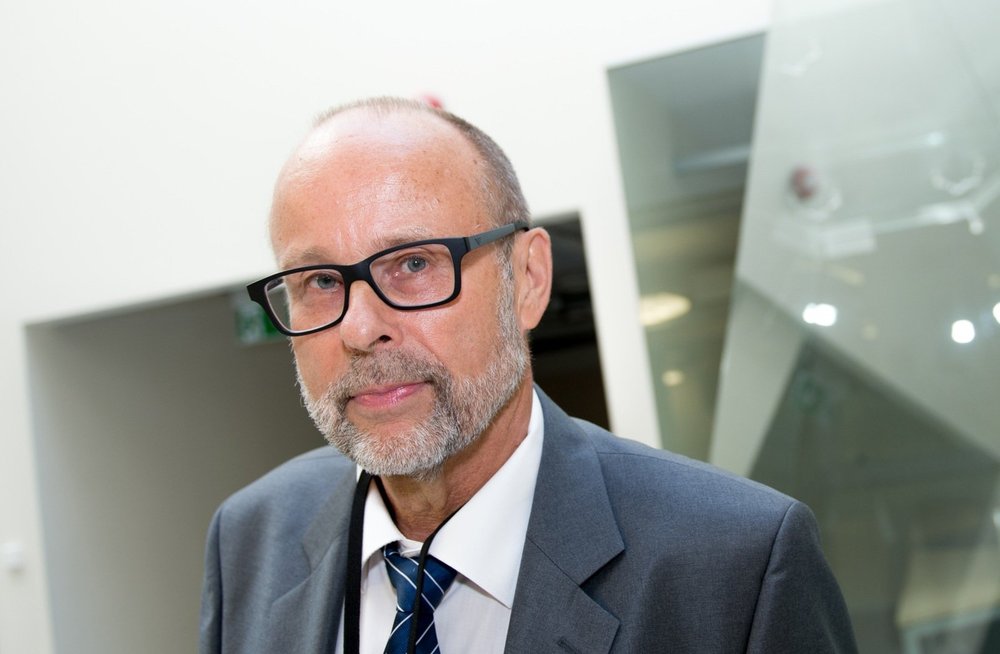Online Seminar: “Stripes with scars, but no stars? Democracy in America Today” (2021)
About
The assault to the Capitol in Washington is the iconic event that certifies a deep unease of democracy in the Western World and especially in the United States f America. A mass of white, male, angry people stormed the buildings that represent democratic government in the United States. For the first time a confederate flag, the flag of the Secessionist southern confederation in the American Civil War, was paraded in the U. S. Senate hall. It seemed to signify that the clock of history might somehow be put back. Civil rights, equality, democratic deliberation, were somehow put under siege. One would be tempted to interpret all this as the contingent surge of an irrational rage more moved by idiosyncratic feelings and needs than supported by a deeper social dissatisfaction with the liberal political regime. One might think it to be the feast of a few fanatics or lunatics that were by mere chance able to take with them ordinary citizens not fully happy with the presidential elections’ outcome. However, the general impression is that we are in front of something new, of a quite widespread revolt against democratic rationality. Such revolt is indeed operating underground in several parts of the Western world. People do not identify themselves in the existing democratic status quo. It is possible that such status quo is plagued by a permanent deficit in keeping promises and fulfilling expectations by citizens. Important decisions have increasingly been taken away from citizens’ control and given to too far away or too loosely representative bodies or just to regulatory agencies without any specific representative legitimacy. This has actually been a fundamental strategy of neoliberal economic governance. Moreover, social inequalities have dramatically increased in many countries in spite of their being ruled through representative democratic institutions. But how much inequality can a democracy bear without eventually becoming an oligarchy? And how much identitarian pluralism can a country tolerate without being torn asunder? How much untruth and how many lies are compatible with a sound functioning of a civil society that intends to be governed in a democratic way? How much can social media replace an interpersonal and collective practice of discourse without condemning the public sphere to be just a sadly and easily manipulated arena for fake-news producers and hate speakers? These are the questions that we would like to discuss in the seminar held by Professor Nadia Urbinati.
Programme
17:00-17:05 Opening words by Massimo La Torre, Professor of European Law, School of Governance, Law and Society TLU
17:05-17:45 Presentation by Professor Nadia Urbinati
17:45-18:15 Comments by Professor Rein Müllerson, Professor William E. Scheuerman and expert in US politics, democracy and cyber security Liisa Past.
18:15-19:00 Q&A
Scholars involved:
Presenting:
 Nadia Urbinati (Ph.D., European University Institute, Florence, 1989) is a political theorist who specializes in modern and contemporary political thought and the democratic and anti-democratic traditions. She co-chaired the Columbia University Faculty Seminar on Political and Social Thought and was a co-editor with Andrew Arato of the academic journal Constellations: An International Journal of Critical and Democratic Theory. She is a member of the Executive Committee of the Foundation Reset Dialogues on Civilization.
Nadia Urbinati (Ph.D., European University Institute, Florence, 1989) is a political theorist who specializes in modern and contemporary political thought and the democratic and anti-democratic traditions. She co-chaired the Columbia University Faculty Seminar on Political and Social Thought and was a co-editor with Andrew Arato of the academic journal Constellations: An International Journal of Critical and Democratic Theory. She is a member of the Executive Committee of the Foundation Reset Dialogues on Civilization.
She has been a member of the School of Social Sciences of the Institute for Advanced Study, Princeton University, and a Laurance S. Rockefeller Visiting Fellowship in the University Center for Human Values, Princeton University. She is permanent visiting professor at the Scuola Superiore de Studi Universitari e Perfezionamento Sant’Anna of Pisa (Italy), and taught at Bocconi University (Milan), SciencesPo (Paris) and the University UNICAMP (Brazil).
She is the winner of the 2008-9 Lenfest/Columbia Distinguished Faculty Award. In 2008 the President of the Italian Republic awarded Professor Urbinati the Commendatore della Repubblica (Commander of the Italian Republic) “for her contribution to the study of democracy and the diffusion of Italian liberal and democratic thought abroad.” In 2004 her book Mill on Democracy (cited below) received the David and Elaine Spitz Prize as the best book in liberal and democratic theory published in 2002.
Commenting:
 Rein Müllerson (Tallinn): Professor Emeritus at Tallinn University. In 2009-2017 he was the Rector of Tallinn University Nord, and President of the Law School and research Professor of Tallinn University. 1994-2009 he was Professor of International Law at King’s College, London. In 2004, on Sabbatical from King’s, he worked as the UN Regional Adviser for Central Asia. In 1992-94 he was Visiting Centennial Professor of the London School of Economics and Political Science. In 1991-92 Müllerson was First Deputy Foreign Minister of Estonia and in 1988-92 a Member of the UN Human Rights Committee. Before that Müllerson worked as the Head of the Department of international law at the Institute of State and Law in Moscow and was Advisor to President Gorbachev of the USSR on international law. He is a graduate of the Law Faculty of Moscow University and holds PhD (1978) and Doctorate (1985) from that University. Since 1995 he is a Member of the Institut de Droit International. In 2013, in Tokyo, he was elected the President of the Institut de Droit International. He is fluent in Estonian, Russian, English and French. Professor Müllerson is the author of thirteen books on international law and politics and more than 200 articles and reviews. His latest books are International Law: Rights and Politics (Routledge 1994); Human Rights Diplomacy (Routledge, 1997); Ordering Anarchy: International Law in International Society (Kluwer Law International, 2000); Central Asia: A Chessboard and Player in the New Great Game (Kegan Paul, 2007 and second edition by Routledge in 2012); Democracy Promotion: Institutions, International Law and Politics, (The Hague Academy of International Law, Recueil des Cours, vol 333, 2008); Martinus Nijhoff Publishers; Democracy – A Destiny of Humankind: A Qualified, Contingent and Contextual Case for Democracy Promotion, NovaPublishers (New York), 2009 (in 2013 published also in Estonian by Tallinn University Press); Regime Change: From Democratic Peace Theories to Forcible Regime Changes, Brill, Martinus Nijhoff Publishers (Leiden, Boston), 2013; Dawn of a New Order: Geopolitics and Clash of Ideologies (London, I.B. Tauris, 2017). He is the author of more than 300 academic articles.
Rein Müllerson (Tallinn): Professor Emeritus at Tallinn University. In 2009-2017 he was the Rector of Tallinn University Nord, and President of the Law School and research Professor of Tallinn University. 1994-2009 he was Professor of International Law at King’s College, London. In 2004, on Sabbatical from King’s, he worked as the UN Regional Adviser for Central Asia. In 1992-94 he was Visiting Centennial Professor of the London School of Economics and Political Science. In 1991-92 Müllerson was First Deputy Foreign Minister of Estonia and in 1988-92 a Member of the UN Human Rights Committee. Before that Müllerson worked as the Head of the Department of international law at the Institute of State and Law in Moscow and was Advisor to President Gorbachev of the USSR on international law. He is a graduate of the Law Faculty of Moscow University and holds PhD (1978) and Doctorate (1985) from that University. Since 1995 he is a Member of the Institut de Droit International. In 2013, in Tokyo, he was elected the President of the Institut de Droit International. He is fluent in Estonian, Russian, English and French. Professor Müllerson is the author of thirteen books on international law and politics and more than 200 articles and reviews. His latest books are International Law: Rights and Politics (Routledge 1994); Human Rights Diplomacy (Routledge, 1997); Ordering Anarchy: International Law in International Society (Kluwer Law International, 2000); Central Asia: A Chessboard and Player in the New Great Game (Kegan Paul, 2007 and second edition by Routledge in 2012); Democracy Promotion: Institutions, International Law and Politics, (The Hague Academy of International Law, Recueil des Cours, vol 333, 2008); Martinus Nijhoff Publishers; Democracy – A Destiny of Humankind: A Qualified, Contingent and Contextual Case for Democracy Promotion, NovaPublishers (New York), 2009 (in 2013 published also in Estonian by Tallinn University Press); Regime Change: From Democratic Peace Theories to Forcible Regime Changes, Brill, Martinus Nijhoff Publishers (Leiden, Boston), 2013; Dawn of a New Order: Geopolitics and Clash of Ideologies (London, I.B. Tauris, 2017). He is the author of more than 300 academic articles.
 William E. Scheuerman: professor Bill Scheuerman’s primary research and teaching interests are in modern political thought, German political thought, democratic theory, legal theory, and international political theory. After teaching at Pittsburgh and Minnesota, he joined the Indiana faculty in 2006. Bill’s most recent book is Civil Disobedience (Polity Press, 2018). He is also the author of Between the Norm and the Exception: The Frankfurt School and the Rule of Law (MIT, 1994), which won two prestigious awards, as well as Carl Schmitt: The End of Law (Rowman & Littlefield, 1999), Liberal Democracy and the Social Acceleration of Time (Johns Hopkins, 2004), Frankfurt School Perspectives on Globalization, Democracy, and the Law (Routledge 2008), Hans J. Morgenthau: Realism and Beyond (Polity, 2009), and The Realist Case for Global Reform (Polity, 2011). He has edited The Rule of Law Under Siege (California, 1996), From Liberal Democracy to Fascism: Legal and Political Thought in the Weimar Republic (Humanities Press, 2000) (with Peter Caldwell), and High-Speed Society: Social Acceleration, Power, and Modernity (Penn State, 2009) (with Hartmut Rosa). Bill has published in many professional journals, including Constellations, History of Political Thought, International Theory, Journal of Political Philosophy, Politics & Society, Review of International Studies, and Social Research. A recipient of numerous prestigious grants and fellowships, he serves on editorial boards for a number of journals, including Constellations, European Journal of Political Theory, International Relations, Journal of International Political Theory, Review of Politics, and Time & Society. Until recently, Bill was a North American Co-Director for an annual international conference for critical theorists held in Prague.
William E. Scheuerman: professor Bill Scheuerman’s primary research and teaching interests are in modern political thought, German political thought, democratic theory, legal theory, and international political theory. After teaching at Pittsburgh and Minnesota, he joined the Indiana faculty in 2006. Bill’s most recent book is Civil Disobedience (Polity Press, 2018). He is also the author of Between the Norm and the Exception: The Frankfurt School and the Rule of Law (MIT, 1994), which won two prestigious awards, as well as Carl Schmitt: The End of Law (Rowman & Littlefield, 1999), Liberal Democracy and the Social Acceleration of Time (Johns Hopkins, 2004), Frankfurt School Perspectives on Globalization, Democracy, and the Law (Routledge 2008), Hans J. Morgenthau: Realism and Beyond (Polity, 2009), and The Realist Case for Global Reform (Polity, 2011). He has edited The Rule of Law Under Siege (California, 1996), From Liberal Democracy to Fascism: Legal and Political Thought in the Weimar Republic (Humanities Press, 2000) (with Peter Caldwell), and High-Speed Society: Social Acceleration, Power, and Modernity (Penn State, 2009) (with Hartmut Rosa). Bill has published in many professional journals, including Constellations, History of Political Thought, International Theory, Journal of Political Philosophy, Politics & Society, Review of International Studies, and Social Research. A recipient of numerous prestigious grants and fellowships, he serves on editorial boards for a number of journals, including Constellations, European Journal of Political Theory, International Relations, Journal of International Political Theory, Review of Politics, and Time & Society. Until recently, Bill was a North American Co-Director for an annual international conference for critical theorists held in Prague.
